Jann Williams
May 14, 2023
A yellow caterpillar inspires poetry, a heart is opened, elusive scents are pursued, the sense of touch is playfully explored, a TikTok video is born, lives are changed.
These instinctive and creative responses were evoked by an invitation to discover the beauty and wonder of nature, amidst the verdant forest foliage of Takaragaike Park in northern Kyoto. Skillfully guided by Milena Guziak, a Shinrin Yoku (forest bathing) expert, the wellbeing benefits of deeply connecting to the natural world came to the fore in a special Writers in Kyoto (WiK) event held on May 14, 2023. As a member of the group it was a pleasure to take part.
Seven of us met in the morning at Kokusaikaikan Station on the Karasuma Subway line, followed by a short walk to a park bench surrounded by forest. The station was opened in 1997, just prior to the Kyoto Protocol meeting convened in the nearby International Conference Centre. Running the forest bathing experience close to where global leaders first debated the reduction of greenhouse gases seemed apt. It reinforces the continuing urgent need to tackle climate change, even more so now, and the importance of thinking globally and acting locally.
Our forest bathing activities were extremely local. Each of us selected a place or places in the forest that best matched the guidance we had received in our invitations from Milena. Other participants had specific subjects to focus their attention on – wind, smell, touch, colour and heaven – while my invitation was an experience of presence, a moment to cherish the intricacies of the world around me. Our different encounters were revealed and shared after we had spent time in the forest. The illuminating exchange illustrated how even a short time spent in nature (40 minutes in this case) can enrich the appreciation of its beauty and intricacy.
Shinrin Yoku is designed to reconnect people with nature through being mindful of one’s senses, help them bring the practice into their daily lives, and ultimately encourage pro-conservation behaviour. The term was coined by the Japanese Ministry of Agriculture, Forestry, and Fisheries in 1982. Forest bathing was and is prescribed in Japan as an antidote for people living in stressful environments as well as a potential tool to inspire people to protect the countries forests.
Slowing down and being mindful of nature can be an immense source of inspiration for people to create works of art. Bathing in the forest and observing what was around him energised one participant to compose the following poem.
‘Colours’
Brown, brown the forest floor
Green, green the new leaf growth
The tree before me dappled grey
And there amongst the fallen leaves
Busy black ants foraging
But wait–
Bright yellow on this overcast day
Ungainly movement, back arched upwards
Concertina caterpillar
Tasty morsel for birds on high
You too are part of nature
You too are part of me
(With thanks to Alan Watts)
Since the early 80s multiple studies around the world have demonstrated the physical and mental health benefits of spending time in a forest or other natural setting, or even looking at greenery such as in a hospital setting. The related practice of forest therapy (Shinrin Ryoho), also developed in Japan, is designed to address the health of both people and forests. Working in the forest to improve its health has been shown to be therapeutic on many levels. There is an urban variant of Shinrin Yoku as well. Designing different programs for different places and different people is a hallmark of this mindfulness practice.
The approach to Shinrin Yoku taken by Milena through her company ‘The Mindful Tourist’ is firmly based on the latest research. She has a PhD in Engineering and an MSc in psychology and is in contact with many of the key researchers in the nature therapy/mindfulness field. Milena spoke of the Nature Connectedness Research Group at the University of Derby she has links with, and the smartphone app they have designed. The group also runs an online course intended to help improve people’s wellbeing through establishing a new relationship with nature and tackle larger issues such as climate change.
Milena‘s greatest love though is to be one with the forest. The training she provides to new Shinrin Yoku guides is permeated with the deep emotional connection to nature she has developed over recent years. Her life has been transformed since I last saw her in Kyoto over 4 years ago. Our interests have converged over the intervening period. The animated group discussion she led covered topics such as nature contact versus nature connections, the strengths and weaknesses of virtual reality and plantation-based nature experiences, phytocites and other beneficial compounds, biophilia, the pros and cons of smart phones for forest bathing, and the importance of ‘being’ rather than ‘doing’.
The timing of this members-only event was perfectly aligned with the publication of ‘The Nature of Kyoto’, the fifth WiK Anthology. John Dougill, Mark Hovane, Ted Taylor, Marianne Kimura, Mayumi Kawaharada and myself were grateful for the opportunity to experience forest bathing in the ancient capital prior to the Anthology launch on May 21st. A big thank-you to Milena (centre, photo below) for so generously giving her time and expertise and for sharing her sense of wonder.
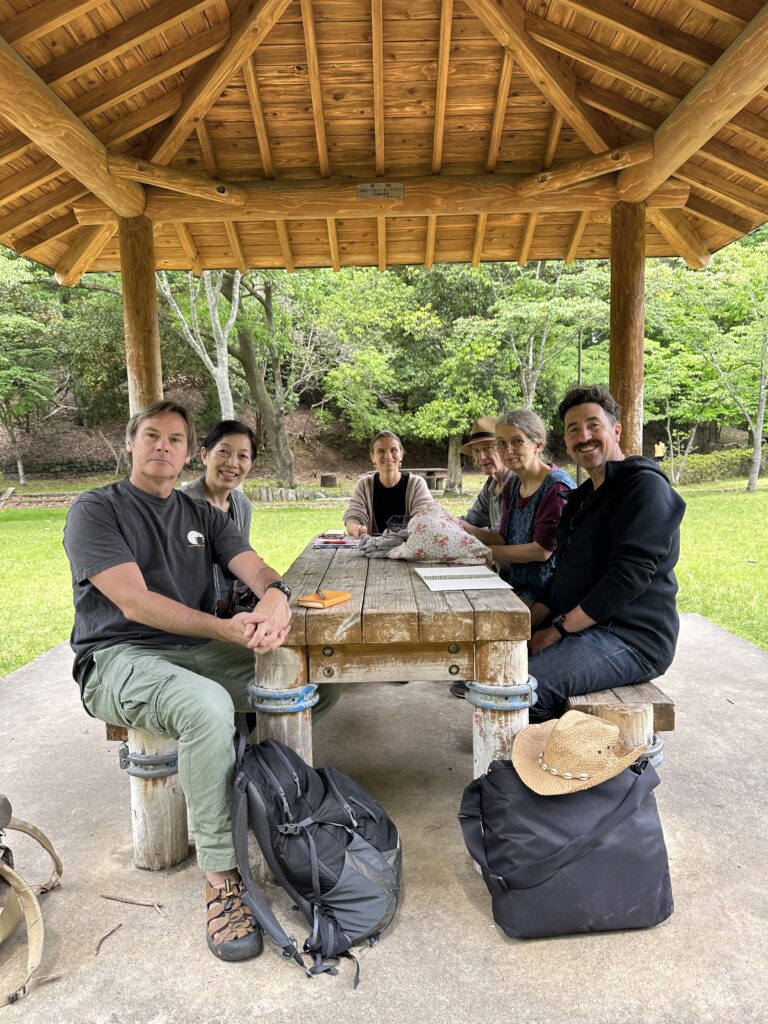
Links:
The Mindful Tourist (Milena’s Company): https://themindfultourist.net
For Milena’s forest-inspired poetry: https://www.amazon.com/s?k=milena+guziak&crid=258CEJQG98JEQ&sprefix=milena+guziak%2Caps%2C226&ref=nb_sb_noss_1
University of Derby online Nature Connectedness and climate change course: https://www.futurelearn.com/courses/nature-connectedness-derby
The Nature of Kyoto (2023) (this link is to the Amazon US site; the WiK Anthology is also available through other Amazon country portals, including Japan and Australia): https://www.amazon.com/Nature-Kyoto-Writers-Anthology/dp/B0C47JCVDM

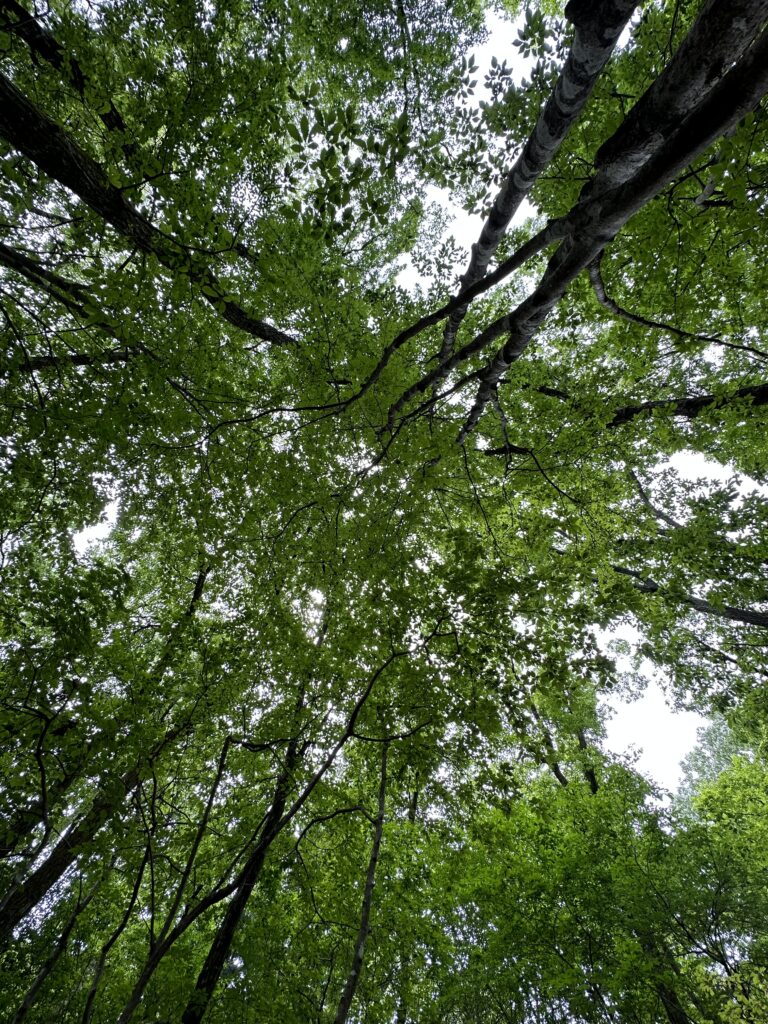
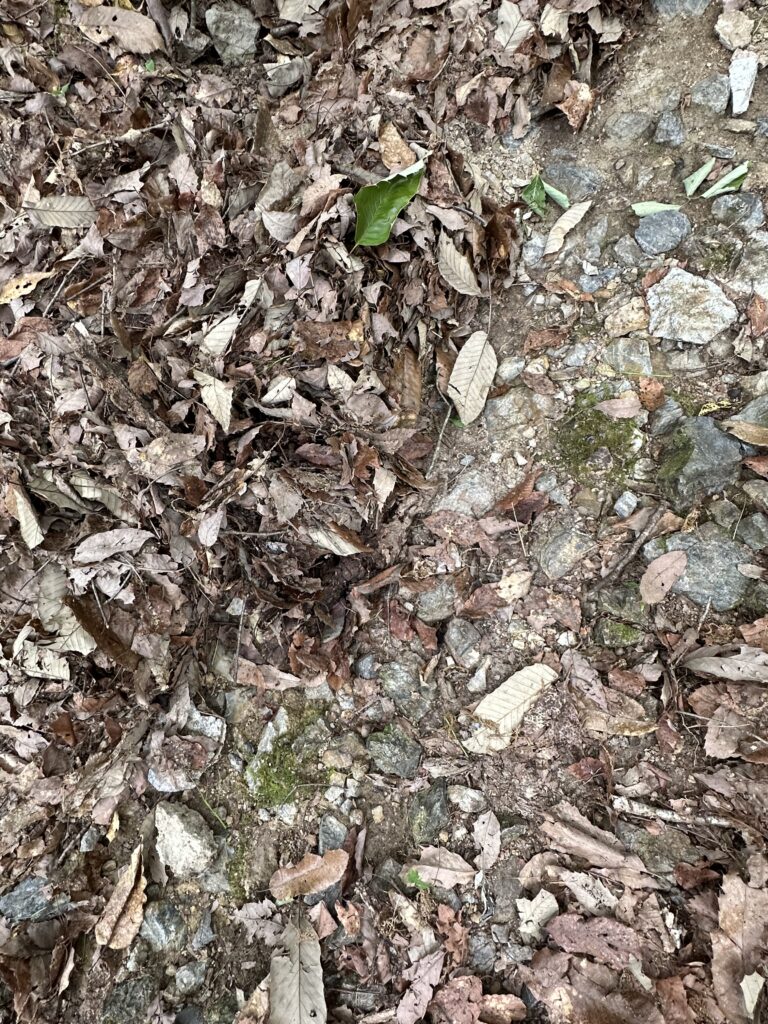
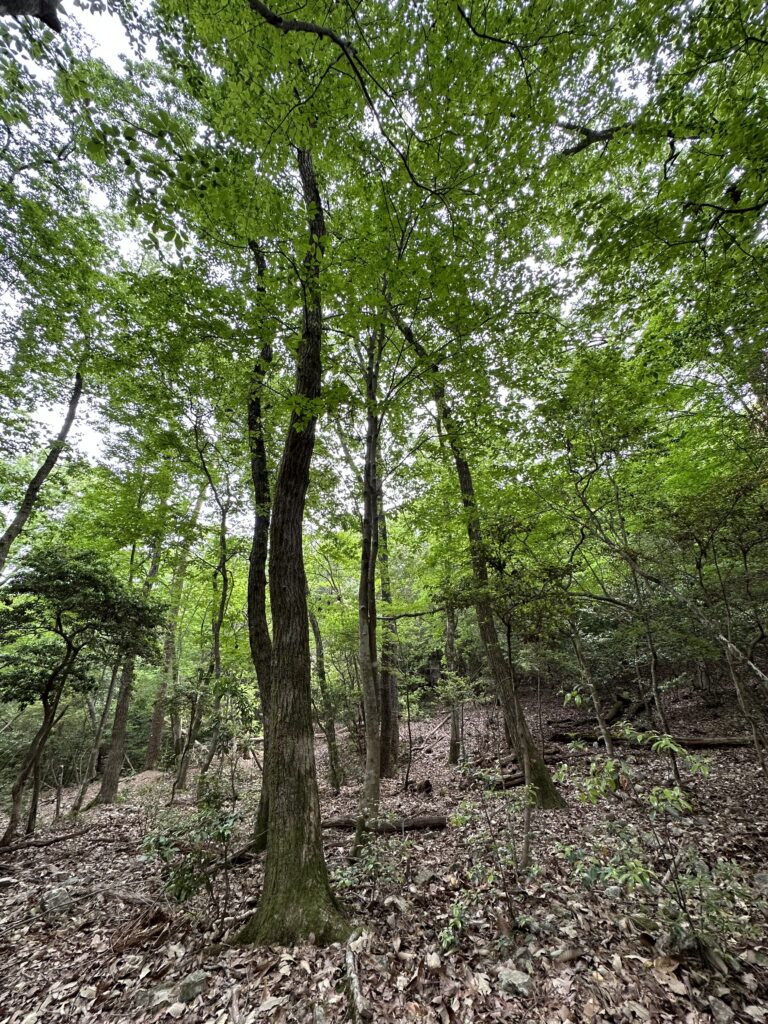
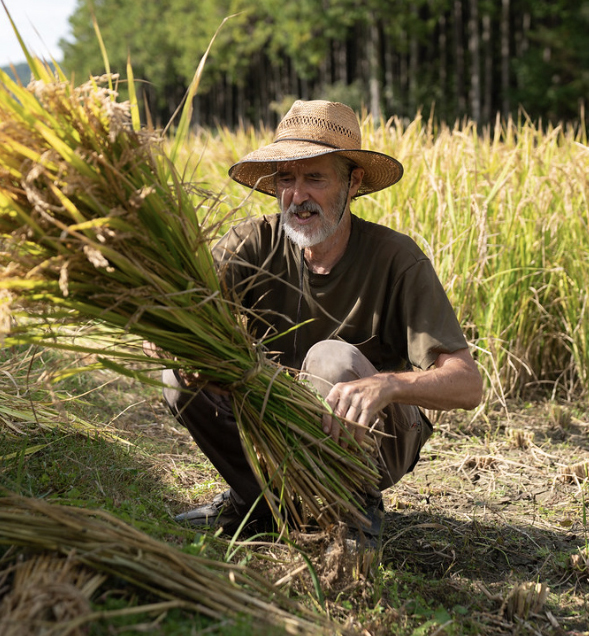





Recent Comments